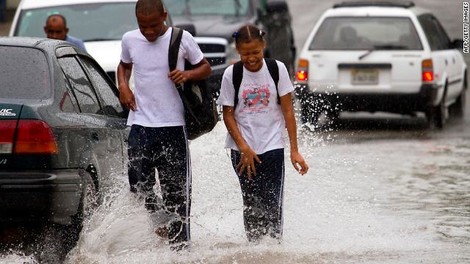Your podcast discovery platform
Curious minds select the most fascinating podcasts from around the world. Discover hand-piqd audio recommendations on your favorite topics.

piqer for: Climate and Environment Global finds
Andrea is a writer and researcher based out of Chicago. Andrea has a Bachelor's degree in environmental science from The Ohio State University and a Master's in Environmental Planning and Management at National Taiwan University, where she specialized in climate adaptation and urbanization. She writes for TaiwaneseAmerican.org, and sends out a biweekly newsletter which includes articles on politics, environment, identity, and intersections of race, class, and gender (http://eepurl.com/bPv-F5).
Pediatricians Are Concerned About Climate Change, And Here's Why
While many know that the impacts of climate change will affect the most vulnerable of populations, there is surprisingly little research about how it will affect children in particular. But a new paper by Dr. Kevin Chan and Dr. Rebecca Pass Philipsborn seeks to start filling this gap. They claim that "children are estimated to bear 88% of the burden of disease related to climate change." This startling statistic sheds light on how climate change is a serious public health concern due to its impacts on food, water, hygiene, and heat. And children will be greatly impacted by these fluctuations.
"Children suffer more heat impacts because they spend more time outside. They are more vulnerable to the heat-related increases in air pollution that come from fossil fuel exhaust, because their lungs are still developing. Outdoor play also makes them more prey to insect vectors carrying dangerous infections," says Dr. Mona Sarfaty. "The doctors in our societies are seeing these problems today, and they will undoubtedly get worse if we don't decisively address climate change."
Causes of death like diarrhea, malaria, and nutritional deficiencies can be heuristically linked to poverty, and all can be climate sensitive as well. The spread of the Zika virus is another example of a climate-influenced disease that disproportionately impacts children. Chan and Philipsborn believe that more child-specific research is needed, as most research now focuses broadly on adult populations.
This article highlights a gap in climate change literature, and helps connect the dots between what we know about climate change, and how it specifically impacts children. Pediatricians and climate researchers have much to collaborate on to ensure healthy futures for children around the world.
